_S01_025_Q01.png)
The figure shows elliptical orbit of a planet m about the sun S. the shaded area SCD is twice the shaded area SAB. If t1 be the time for the planet to move from C to D and t2 is the time to move from A to B, then:
Step by step video & image solution for The figure shows elliptical orbit of a planet m about the sun S. the shaded area SCD is twice the shaded area SAB. If t_(1) be the time for the planet to move from C to D and t_(2) is the time to move from A to B, then: by Physics experts to help you in doubts & scoring excellent marks in Class 10 exams.
Updated on:21/07/2023Topper's Solved these Questions
- GRAVITATIONBOOK - TARGET PUBLICATIONCHAPTER - GRAVITATIONEXERCISE - APPLY YOUR KNOWLEDGE
13 Videos
- ENVIRONMENTAL MANAGEMENT BOOK - TARGET PUBLICATIONCHAPTER - ENVIRONMENTAL MANAGEMENT EXERCISE - APPLY OUR KNOWLEDGE
28 Videos
- HEATBOOK - TARGET PUBLICATIONCHAPTER - HEATEXERCISE - Values to remember
10 Videos
Similar Questions
_S01_025_Q01.png)
The figure shows elliptical orbit of a planet m about the sun S. the shaded area SCD is twice the shaded area SAB. If t1 be the time for the planet to move from C to D and t2 is the time to move from A to B, then:
View SolutionThe figure shows elliptical orbit of a plant P about the sun S. The shaded area CSD is twice tha shaded area ASB. If t1 is the time taken by the planet to move from C to D and t2 is the time to move from A to B, determine the ratio t1/t2
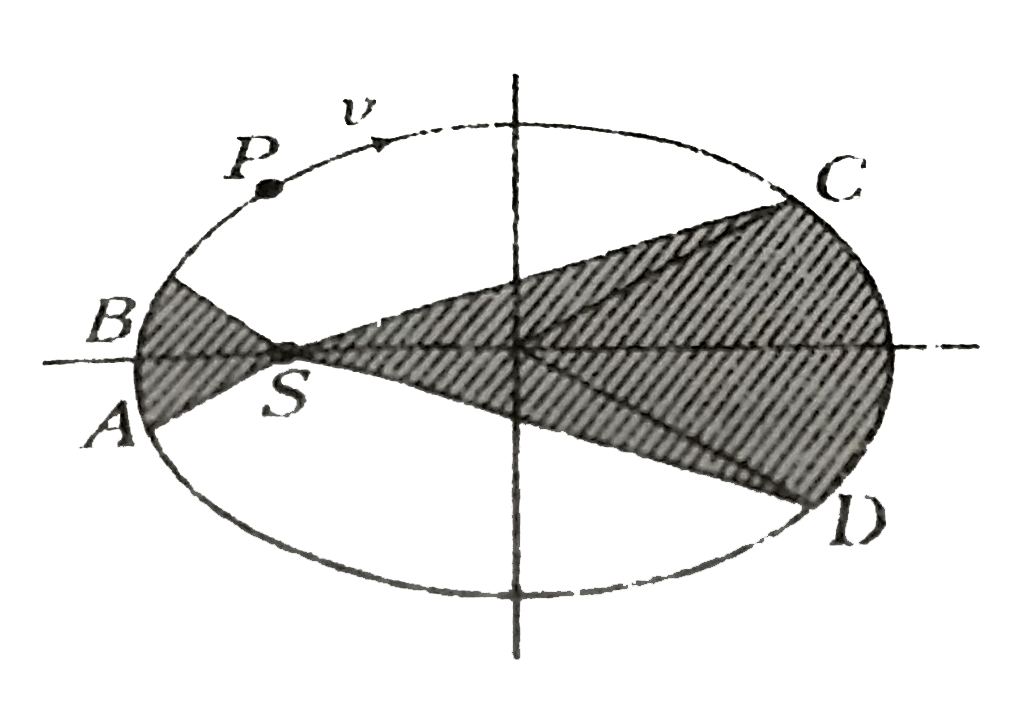
View Solution
Knowledge Check
_S01_025_Q01.png)
The figure shows elliptical orbit of a planet m about the sun S. the shaded area SCD is twice the shaded area SAB. If t1 be the time for the planet to move from C to D and t2 is the time to move from A to B, then:At1=4t2Bt1=2t2Ct1=t2Dt1>t2Figure shows the orbit of a planet P round the sun S. AB and CD are the minor and major axed of the ellipse.
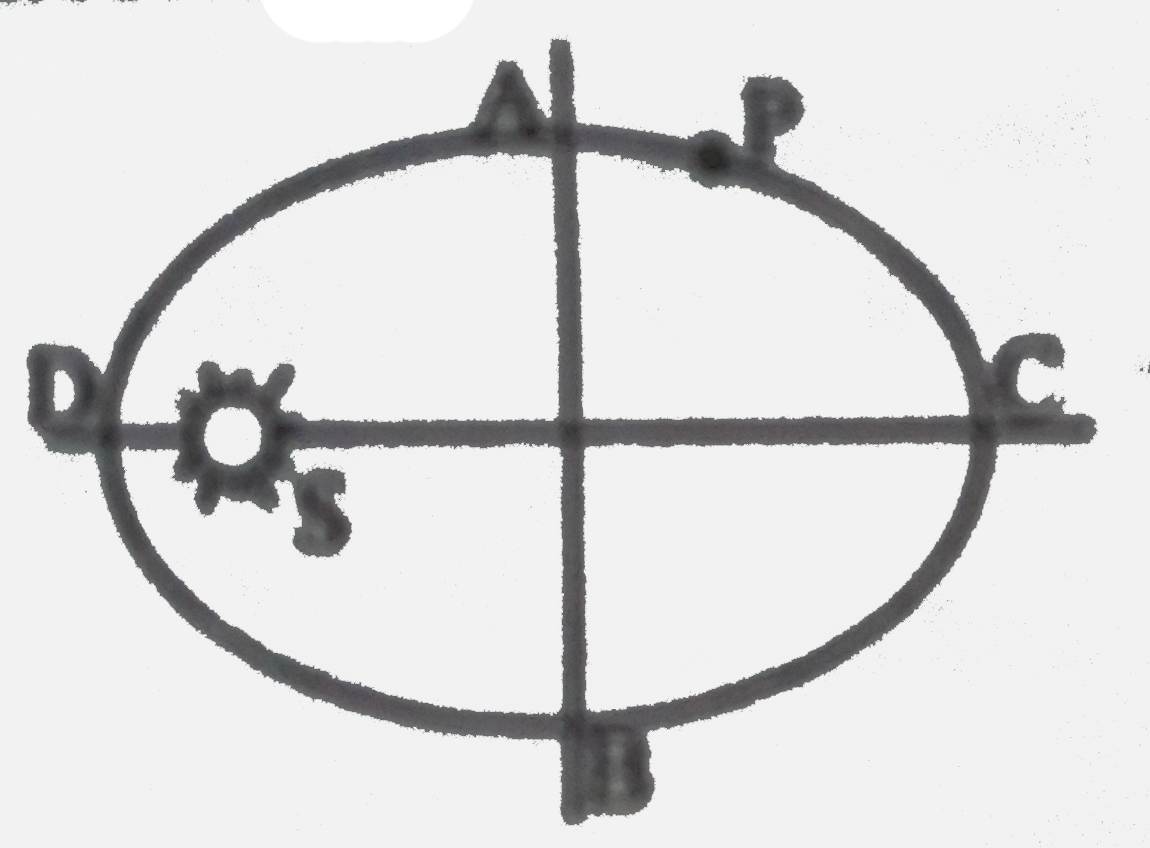
If t1 is the time taken by the planet to travel along ACB and t2 the time along BDA, thenAt1=t2Bt1>>t2Ct1<t2Dnothing can be concluded
The figure shows the elliptical orbit of a planet about the sun S. An ellipse is the curve obtained when a cone is cut by an inclined plane. It has two focal points. The sum of the distances to the two focal points from every point on the curve is constant. F1 and F2 are the two focal points of the ellipse . The shaded area CF1D is twice the shaded area AF1B.t1 is the time taken by the planet to move from C to D and t2 is the time to move from A to B
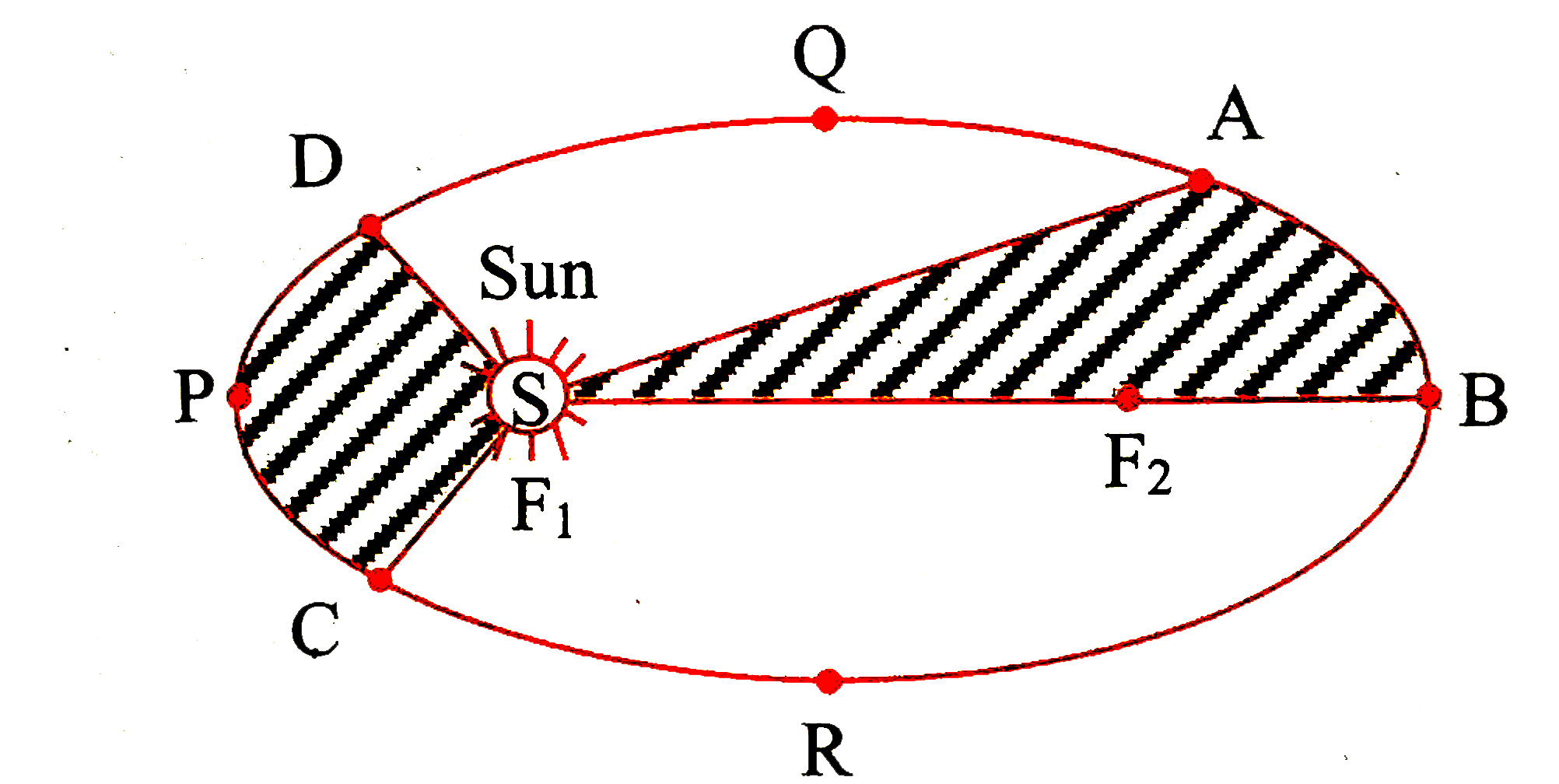
State the law regarding areas swept by the line joining the planet and the sun
View SolutionThe figure shows the elliptical orbit of a planet about the sun S. An ellipse is the curve obtained when a cone is cut by an inclined plane. It has two focal points. The sum of the distances to the two focal points from every point on the curve is constant. F1 and F2 are the two focal points of the ellipse . The shaded area CF1D is twice the shaded area AF1B.t1 is the time taken by the planet to move from C to D and t2 is the time to move from A to B
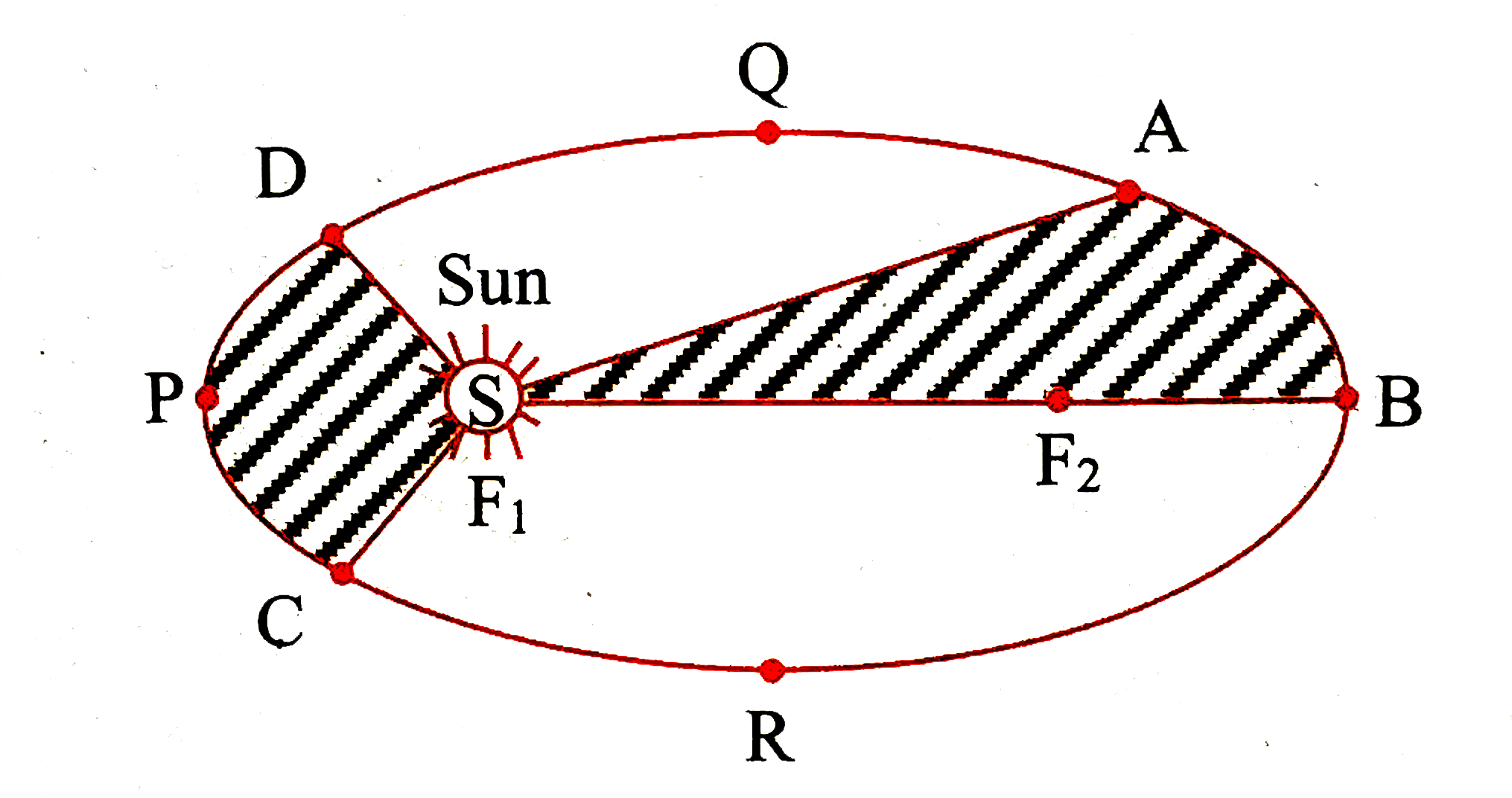
State the law regarding the time period of revolution of a planet .
View SolutionThe given figure shows the elliptical orbit of a planet m about the sun S. If t1 is the time taken by the planet of move from C to D and t2 is the time taken by the planet to move from A to B, then the relation between t1andt2 is [Given, area SCD = 2 (area SAB)]
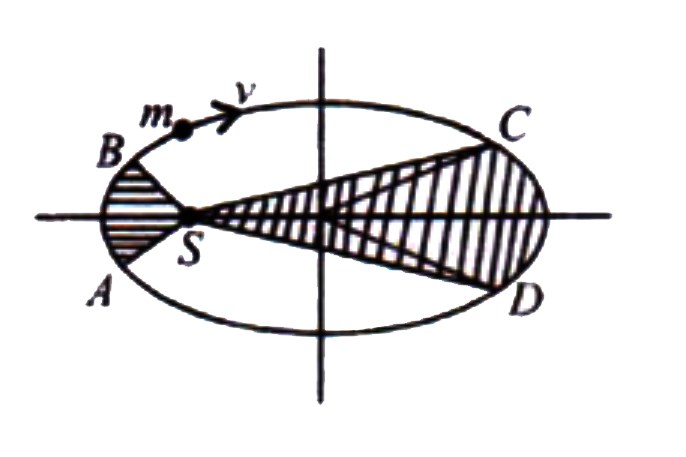
View SolutionThe figure shows the elliptical orbit of a planet about the sun S. An ellipse is the curve obtained when a cone is cut by an inclined plane. It has two focal points. The sum of the distances to the two focal points from every point on the curve is constant. F1 and F2 are the two focal points of the ellipse . The shaded area CF1D is twice the shaded area AF1B.t1 is the time taken by the planet to move from C to D and t2 is the time to move from A to B
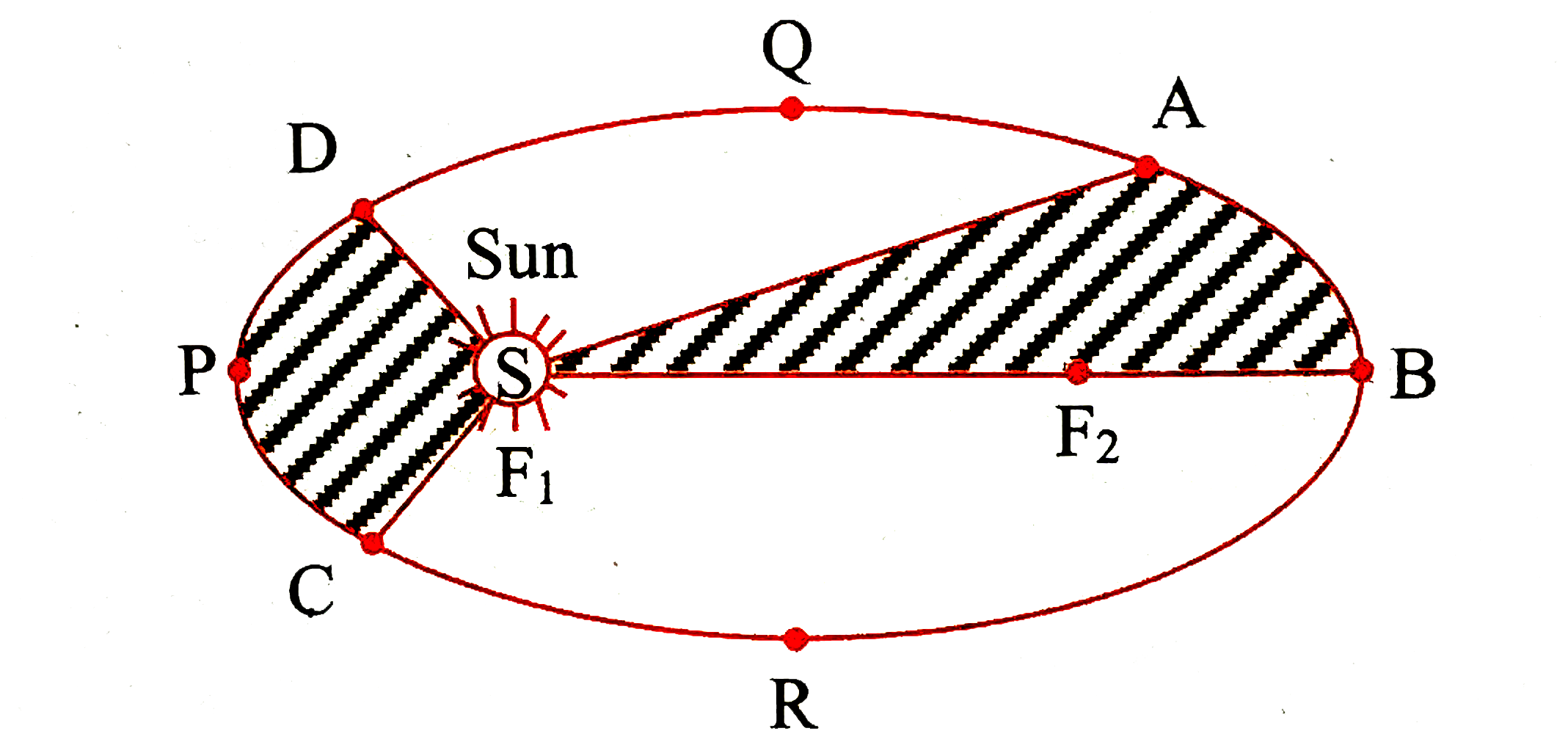
Which laws do we understand from the above diagram and description?
View SolutionFigure shows the elipticla path of a planet about the sun. The two shaded parts have equal area. If t1andt2 be the tim taken by the planet to go from a to b and from c to d respectively
View SolutionThe figure shows the motion of a planet around the sun in an elliptical orbit with the sun at one focus. The shaded area SAB is twice that of SCD. If t1andt2 are the times taken by the planet to move from A to B and C to D respectively, then
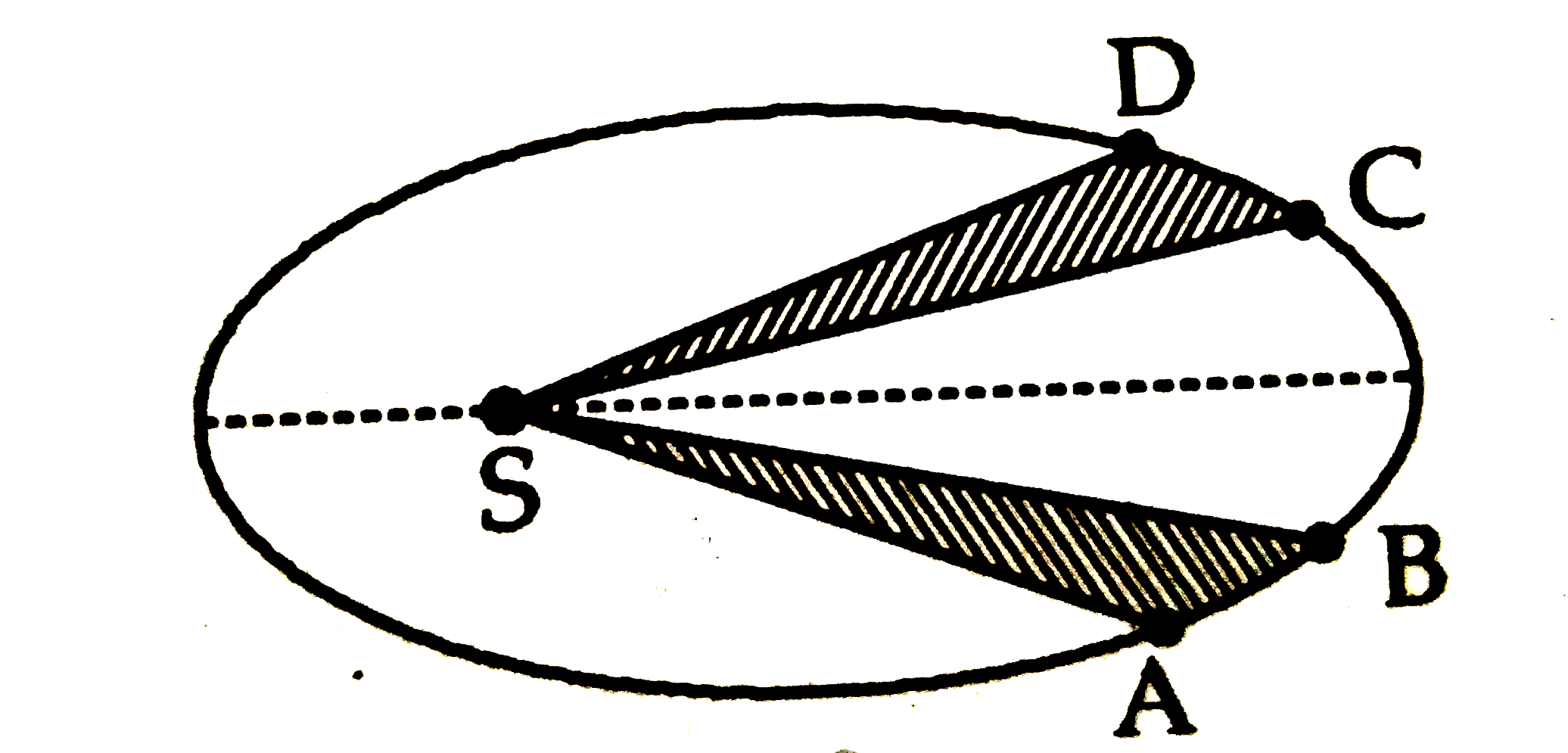
View Solution
